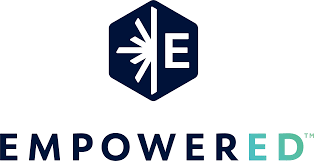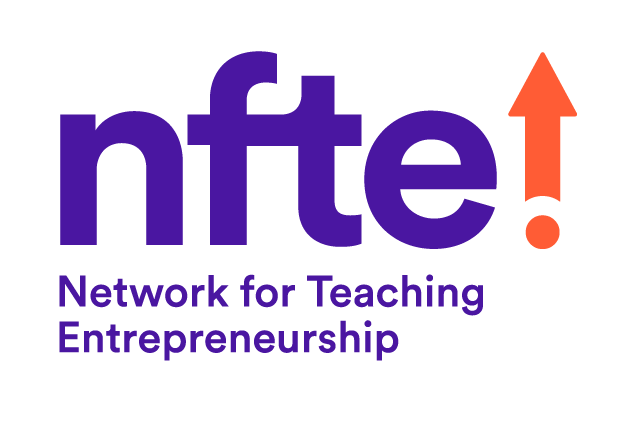Business Education | Entrepreneurship
4 Best High School Entrepreneurship Curriculum Options
Coming from a family of educators, Brad knows both the joys and challenges of teaching well. Through his own teaching background, he’s experienced both firsthand. As a writer for iCEV, Brad’s goal is to help teachers empower their students by listening to educators’ concerns and creating content that answers their most pressing questions about career and technical education.
Are you a high school business teacher looking for a new entrepreneurship curriculum? If so, you’re probably concerned about finding materials that are relevant and engaging for your students.
Whether you teach a semester elective or a year-long entrepreneurship course, you want to help your students prepare for certifications and their future career goals.
There are a variety of entrepreneurship resources out there, but it can be tough to decide which materials are right for you.
In this post, you’ll discover four popular high school entrepreneurship curriculum that teachers have shared with us:
- Empowered
- NFTE: Network For Teaching Entrepreneurship
- BizInnovator Startup
- Foundations in Entrepreneurship
After learning about each of these resources, you’ll have the information you need to decide if one or more is a good fit for your students.
1. Empowered

Youth Entrepreneurs is a notable nonprofit organization designed to empower young people to pursue entrepreneurial goals. Youth Entrepreneurs offers Empowered Hub as a free curriculum to help teachers and students develop the knowledge, skills, and mindset necessary for success.
Empowered Hub focuses on helping learners cultivate the values they’ll need to be successful leaders and entrepreneurs. To achieve this, it includes a broad range of activities centered around market concepts and foundational principles.
In total, Empowered offers 100+ lessons and activities across topic areas including:
- Foundational Principles
- Career and Life Skills
- Business & Entrepreneurship
- Design Thinking
- Economics
- Marketing
Generally, these resources take the form of experiential activities intended to engage students and get them involved hands-on with your course's subject matter. These activities can take anywhere from 10 to 120 minutes, and often come equipped with PowerPoint slides, teacher notes, and even instructional videos.
However, if you're primarily looking for structured, comprehensive lesson plans for your classroom, then these materials may not be the best fit. Empowered Hub focuses on supplying teachers with activities first and foremost, and may serve you better as a library of supplemental resources you can use to pad out a more well-rounded curriculum.
Altogether, if you need high-quality entrepreneurship activities to supplement class, then you can easily use Empowered Hub with your high school business students.
2. NFTE: Network For Teaching Entrepreneurship

Many teachers rely on a second reputable source for engaging entrepreneurship lessons, the Network For Teaching Entrepreneurship (NFTE). NFTE is another international, not-for-profit organization dedicated to expanding students’ entrepreneurial opportunities. NFTE focuses mainly on providing solutions to empower young people in low-income communities.
NFTE offers entrepreneurship solutions that can be taught online, in person, or through a hybrid instructional model. For high school students, NFTE offers three types of programs: Pathway programs, Awareness programs, and Enterprise programs.
Pathway programs are designed for instruction through a school and include these options:
- Entrepreneurship Essentials
- Entrepreneurship 1
- Entrepreneurship 2
- Startup Tech
- NFTE BizCamp
- NFTE Startup Summer
In general, Pathway programs are designed for teachers to implement as full-year courses.
Awareness programs are intended for teacher-led instruction either in school or outside of school and consist of these offerings:
- World Series of Innovation
- Venture
Awareness programs are shorter and range from just a few hours to as many as 80 instructional hours.
Lastly, Enterprise programs are designed for more self-paced or hybridized learning models. They consist of these offerings:
- ESB Prep
- Start It Up!
Educators can turn to NFTE’s Pathway programs if they’re interested in full-year entrepreneurship courses. If you are looking for a shorter option, an Awareness or Enterprise program like Venture or the World Series of Innovation can provide quality lessons for teachers.
One thing to note is NFTE depends on direct partnerships with schools to implement programs. If you’re considering any of their programs, your institution will need to partner directly with NFTE to access their curriculum.
In addition, NFTE requires teachers to attend “NFTE U” teacher training and become members of the NFTE Entrepreneurial Teacher Corps.
This can be great professional development for teachers implementing full-year NFTE courses. Still, if you are looking for just a few entrepreneurship lesson plans, you may want to consider a less time-consuming option to find the materials you need.
3. BizInnovator Startup
BizInnovator Startup is a curriculum offered by the Jacobson Institute at the University of Iowa. The Jacobson Institute provides professional development and curriculum materials to help educators connect STEM education and entrepreneurship.
BizInnovator Startup is a complete curriculum designed for in-person or virtual instruction. The BizInnovator Curriculum Toolkit includes information on how startup businesses identify problems, collect data, and engineer business solutions. Students also learn and practice critical soft skills that will help them become better entrepreneurs.
The Curriculum Toolkit includes six modules instructors can use to teach a course on entrepreneurship:
- Entrepreneurship Overview
- What’s Your Problem?
- Know Your Customer
- Persevere or Pivot
- Crunching the Numbers
- Starting Your Startup
These modules include 50 hours of classroom content that teachers can use as a standalone course or incorporate into a longer program if teaching a full-year entrepreneurship course.
BizInnovator comes complete with scope and sequence documents, presentation slides, interactive activities, resources, and assessments. Students who complete a high school class using BizInnovator are eligible to apply for college credit through the University of Iowa.
Although the Jacobson Institute provides excellent entrepreneurship resources, they aren’t available for free. Teachers who want BizInnovator Startup will need to pay $149 per year for a license for their classrooms. Jacobson Institute also offers professional development opportunities for BizInnovator teachers at an additional cost.
Ultimately, teachers who are willing to pay annually for BizInnovator can receive great value if they incorporate the program in its entirety and have students interested in receiving college credit from a major university.
However, educators working with a limited budget or who only need supplemental resources will need to consider a different solution to implement in their classroom.
4. Foundations in Entrepreneurship

Ramsey Education is a business curriculum provider established by prominent financial advisor Dave Ramsey. It offers educational resources covering several different business and finance topics.
One of the courses offered by Ramsey Education is called Foundations in Entrepreneurship, which provides curriculum materials you can use to teach your students the basics on starting and running their own businesses. These fully digital resources are robust and align directly with NBEA standards, which will make them applicable in many business classrooms across the country.
Foundations in Entrepreneurship is divided into four modules you can use to teach your course:
- Introduction to Entrepreneurship
- Economics and Finances
- Marketing
- Business Management
These modules consist of multiple lessons, educational videos, case studies, activities and assessments, totaling about 25 hours worth of content. What's more, this curriculum tests each student's understanding of entrepreneurship by having them come up with a business idea and develop it through the completion of several hands-on projects.
However, it's important to remember that Foundations of Entrepreneurship isn't free. Your district or program will be charged depending on the number of students who will be using this curriculum. For more info on the specifics of what the course will cost, you'll have to reach out to Ramsey Education directly.
All in all, Foundations of Entrepreneurship is a strong supplemental resource you can use to bolster your existing entrepreneurship curriculum. With only 25 hours of content, this curriculum probably wouldn't be able to stand on its own for a semester- or year-long course. But when used alongside a textbook or other digital option, you can use the materials here to better engage students and teach them practical business skills directly from experts.
Meet Challenges in Your High School Entrepreneurship Classes
Providing excellent entrepreneurship materials to your high school students is critical to inspiring their dreams and setting them on the path to success in the business world.
If you’re looking to implement a full-year entrepreneurship course, any of the options in this article can give you the resources that you need to create a terrific learning experience for your students.
However, many business and entrepreneurship teachers have shared with us that finding the right curriculum isn’t the only challenge they face in the classroom. Teachers face obstacles every day, from dealing with technology to meeting diverse student needs.
Want to be better equipped to face your challenges as a business teacher? If so, download this free guide. You’ll learn about five of the biggest challenges teachers like you face every day, along with information on how you can overcome them and focus on your learners.


